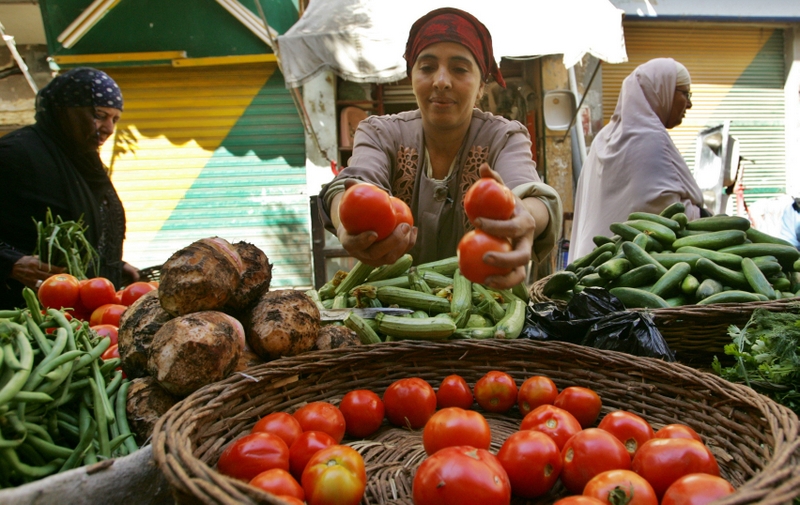
(AFP Photo)
Inflation in Egypt is projected to climb to 10.9% by the end of 2013 fiscal year, the highest level since 2010, the International Monetary Fund (IMF) reported yesterday.
“Inflation is expected to rise in Egypt, Jordan, Morocco, and Tunisia, reflecting recent and planned subsidy cuts and, in some cases, pressure from monetisation of fiscal deficits and supply shortages,” a report on the IMF’s Regional Economic Outlook for the Middle East and Central Asia read.
The report also expected the inflation rate will further rise to 11.6% in 2014, as the Egyptian government continues to introduce tax hikes and curb subsidies.
In April, Egypt’s consumer inflation jumped to 8.1% amid rising food and energy prices and the Egyptian pound’s devaluation.
The IMF’s outlook report further predicts Egypt’s budget deficit to shrink to 8.7% next year, after it recorded 11.3% of the country’s GDP in 2013.
The budget deficit hit 10.7% in 2012.
Egypt’s newly-appointed Investment Minister Yehia Hamed said earlier this month that the shortfall will be 11.5% of the country’s GDP in the fiscal year 2012-1013.
Tax hikes were first introduced last December by President Mohamed Morsi, who also acts as a legislative authority, but were quickly rescinded due to public outcry.
The decision to raise taxes was made in order to hold Egypt eligible for the proposed $4.8bn IMF loan package.
Negotiations with the IMF have been postponed more than once due to political turmoil that followed protests in 2011 that ousted former president Hosni Mubarak.
Foreign reserves and tourism revenues were hard hit by the political upheaval.
“It will be necessary to press on with structural reforms that deepen trade integration, streamline regulations, increase institutional accountability, remove impediments to business entry and exit, modify labour market regulation to encourage hiring while maintaining adequate worker protection,” the report stated.


